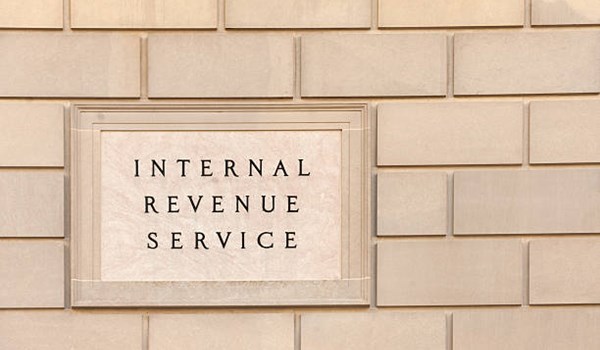Multinational corporations cheated more after getting tax cuts, largest inadvertent real-world testing of corporate tax policies reveals
-
Countries are losing US$492 billion in tax a year to multinational corporations and wealthy individuals using tax havens to underpay tax.
-
Nearly half the losses (43%) are enabled by the eight countries that remain opposed to a UN tax convention: Australia, Canada, Israel, Japan, New Zealand, South Korea, the UK and the US.
-
Biggest enablers of global tax abuse are also some of the biggest losers: US$177 billion lost by the 8 countries that recently voted against UN tax convention terms; US$189 billion lost by 44 abstainers; US$123 billion lost by 110 countries voting for.
-
Multinational corporations are shifting more profit into tax havens and underpaying more on tax, evidencing failure of OECD’s tax reform attempts
-
Multinational corporations cheated more after tax rate cuts, disproving “tax appeasement” thinking popular with lobbyists and some politicians
-
Offshore tax evasion by wealthy individuals dropped, but by far less than claimed. Majority of wealth offshore still hidden from tax authorities.
Countries are losing US$492 billion in tax a year to multinational corporations and wealthy individuals using tax havens to underpay tax, the Tax Justice Network’s annual State of Tax Justice shows.1 Nearly half the losses (43%) are enabled by the eight countries that remain opposed to a UN tax convention: Australia, Canada, Israel, Japan, New Zealand, South Korea, the UK and the US.2
With countries set to vote3 shortly at the UN on whether to finally enter formal negotiations on the meat of a UN tax convention, the Tax Justice Network is urging all countries to vote in favour of the negotiations: “Governments now have a chance to choose differently at the UN, to choose to use tax to protect people, economies and planet.” (Liz Nelson quote continued below)
The negotiation of a UN tax convention is widely seen as the biggest shakeup in history to the global tax system, and previously reported as the world’s best chance to avert losing nearly US$5 trillion to tax havens over the next decade in last year’s edition of the State of Tax Justice.4
Of the US$492 billion lost to global tax abuse a year, two-thirds (US$347.6 billion) is lost to multinational corporations shifting profit offshore to underpay tax. The remaining third (US$144.8 billion) is lost to wealthy individuals hiding their wealth offshore.
“The hurtful eight” cost countries US$212bn a year
The eight countries that remain opposed to a UN tax convention – dubbed “the hurtful eight” by the Tax Justice Network – cost the world US$212 billion in tax losses a year by enabling multinational corporations and wealthy individuals to use their financial systems to underpay tax in other countries.
These eight countries – all OECD members – were the only ones to vote against the pre-negotiation terms agreed by a large majority in August this year on what the parameters and goals of the UN tax convention would be. Some 110 countries voted in favour of the ambitious terms and 44 abstained. The vote saw the collapse of the OECD voting bloc – which had voted almost unanimously in all previous votes in the UN process – when most OECD countries, including all EU countries, abstained.5
Most of the responsibility for enabling global tax losses among the hurtful eight lies with the UK and its “second empire” of British dependencies like the British Virgin Islands, Cayman and Bermuda, for which the UK is responsible for extending its ratification of UN conventions to, and where the UK can impose or veto the law.6 The report finds:
-
The UK and its second empire is responsible for over a quarter of all countries’ tax losses (26%), costing countries US$129 billion a year
-
The US is responsible for 7.6%, costing countries US$38 billion a year
-
Canada is responsible for 6.3%, costing countries US$31 billion a year
-
Japan is responsible for 1%, costing countries US$4.4 billion a year
-
Australia is responsible for 0.3%, costing countries US$1.5 billion a year
-
New Zealand is responsible for 0.04%, costing countries US$0.2 billion a year
-
Israel is responsible for 0.01%, costing countries US$0.06 billion a year
-
South Korea is estimated to be responsible for no tax losses to other countries
OECD countries altogether, including the 30 members which either abstained or voted in favour, continue to be responsible for over two-thirds (69%) of all countries tax losses.
For each US$1 the hurtful eight collected in tax from enabling global tax abuse, the rest of the world lost US$16 in tax, demonstrating the extreme waste of the current arrangements that the hurtful eight voted to preserve.
Lose-lose game: hurtful eight are also the biggest losers
Some of the biggest enablers of global tax abuse are also the world’s biggest losers to global tax abuse – an outcome that highlights the lose-lose nature of the global tax abuse model.
The US lost US$73 billion a year to multinational corporations and wealthy individuals moving their profits and finances elsewhere to underpay tax in the US. The US is the world’s biggest loser, followed by the UK which lost US$45 billion a year. As for the other “no” voters:
-
Australia lost US$24 billion (7th biggest loser)
-
Japan lost US$16 billion (9th)
-
Canada lost US$11 billion (14th)
-
South Korea lost US$2 billion (28th)
-
Israel lost US$1 billion (37th)
-
New Zealand lost US$1 billion (42nd)
Altogether, the eight “no” voters lost US$177 billion a year. Countries that abstained lost US$189 billion a year. Countries that voted “yes” lost US$123 billion a year.
On average, higher income countries lose taxes equivalent to around 7% of their public health budget. For lower income countries, that loss is five times bigger, at around 36%. The eight ‘no’ voting countries, meanwhile, lose an average of 5% of their health budget – while both the abstaining group of countries and the ‘yes’ voters lose at least twice as much on average. EU countries, which make up most of the abstainers, are the world’s biggest losers as a region, altogether losing US$176 billion a year.
Alex Cobham, chief executive at the Tax Justice Network, said:
“The hurtful eight voted for a world where we all keep losing half a trillion a year to tax-cheating multinational corporations and the super-rich. The UK and the US are both among the biggest enablers and the biggest losers of this lose-lose tax system, and their people consistently demand an end to tax abuse, so it’s absurd that the US and UK are seeking to preserve it. It’s perhaps harder to understand why the other handful of blockers, like Australia, Canada and Japan, who don’t play anything like such a damaging role, would be willing to go along with this.
“Equally baffling is the indecision from the abstaining countries, particularly EU countries who are the world’s biggest regional loser to global tax abuse. Faced with a US$176 billion annual tax loss and dangerous political pressures, EU countries must choose between accepting Trump’s veto at the OECD, or working with the rest of the world at the UN to make real progress. When history comes knocking, staying on the fence is not a serious answer.”
Rising tax losses a verdict of failure on OECD tax reforms, as Trump puts future OECD plans on ice
The eight blocking countries have said they oppose a UN tax convention on the grounds that it would “duplicate” the work of the OECD, a small club of rich countries including major tax havens. Originally established as a technical advisory outfit, the OECD has operated as the world’s de facto decision body on global tax rules for over 60 years – a role that would be supplanted by the UN once a UN tax convention is established.
A first-of-its-kind historical trend analysis included in this year’s edition of the State of Tax Justice, based on data7 from the OECD itself, finds that the OECD has comprehensively failed to achieve the central focus of its work since 2013: namely, to reduce countries’ tax losses due to multinational corporations shifting their profit offshore.
Between 2016, when countries first began to implement the OECD’s Base Erosion and Profit Shifting (BEPS) reforms, and 2021, the latest year for which data from the OECD on multinational corporations’ profits is available and by which point the reforms had been fully implemented, countries’ annual losses to multinational corporations shifting their profits offshore went up by more than US$36 billion from US$311 billion in 2016 to over US$347 billion in 2021.
While the first BEPS process is already widely considered a failure by economists, tax experts and policymakers, as is implied in the G20’s decision that the OECD should immediately begin work on ‘BEPS 2.0’, the transparency data on multinational corporations’ profits for the period 2016 to 2021 published by the OECD after years of resistance8 and delays provides the strongest evidence to date of the failure of BEPS.
The OECD committed to deliver the BEPS 2.0 reforms in two years, by 2020. The continuing failure to finalise any agreement, after a process three times as long as scheduled, has shaken confidence in the organisation’s ability to achieve agreement even among member states. The ‘Inclusive Framework’, meanwhile, has been heavily criticised for failing to provide an effective voice for non-OECD members.9 And while the US has dominated the decisions taken on each of the two ‘pillars’ of the OECD proposals, the incoming US administration has threatened economic countermeasures against countries that implement the proposals, including the EU.10
Even if the two pillars were to be finalised and implemented, independent analysis has shown that they would generate much less new revenue than the OECD had claimed.11 In addition, the proposals have been so heavily influenced by lobbyists that the great bulk of new revenues would go to corporate tax haven jurisdictions, rather than the countries that lose out under the current rules.12
The new evidence on the OECD’s failure, exacerbated by uncertainty around the incoming Trump administration, raises significant questions for the abstainers. This applies particularly to EU countries, who will continue to lose the most in tax under OECD tax rules, while likely finding the OECD as a forum increasingly less cooperative, and potentially even hostile to EU values and interests, during a Trump administration. The Republican-dominated US House Ways and Means Committee has already written to the head of the OECD to remind him that the US is the organisation’s largest funder.13
These developments provide further reasons for countries to support the negotiation of an ambitious UN tax convention. Active US attempts to undermine the two pillar proposals can only add to dissatisfaction with the OECD’s responsibility for designing a global tax system that loses nearly half a trillion dollars to tax havens every year, with the OECD’s failure to include the majority of countries meaningfully in its decision-making process, and ultimately with its decade-long failure to end global corporate tax abuse.
Alex Cobham said:
“The hurtful eight want to stick with OECD tax rules that the OECD’s own data demonstrates have failed utterly. They’re choosing to keep losing billions to tax havens, and have been forcing this choice on the rest of the world for decades. But the rest of the world has had it, and that’s why they want to move tax rules to the UN, where they can’t be held hostage.”
Multinational corporations cheated more after getting tax cuts, disproving policymakers
Over the same period in which multinational corporations increased their tax cheating, countries on average cut their corporate tax rates by 3 percentage points, the State of Tax Justice’s analysis of the OECD’s data on multinational corporation’s profits for 2016 to 2021 further reveals.
Despite corporate tax rates dropping, multinational corporations shifted more profit into corporate tax havens, rising to the highest value yet recorded in the State of Tax Justice reports, at US$1.42 trillion in 2021. Asked to pay less tax, multinational corporations cheated more, the data shows.
Had corporate tax rates stayed where they stood in 2016, countries’ tax losses in 2021 would have been US$32 billion higher, at a total of US$380 billion. Countries effectively surrendered US$32 billion in tax to multinational corporations, the Tax Justice Networks says, and in return multinational corporations rinsed countries even harder.
The Tax Justice Network is describing these findings as the largest inadvertent real-world testing of corporate tax policy ever conducted. The OECD data, collected by over 50 governments from over 7,600 multinational corporations, and spanning 6 years, confirms that cutting corporate tax rates did not reduce multinational corporation’s incentive to cheat on tax, and so, did not inversely result in more tax revenue as predicted.
The theory that cutting corporate tax rates can generate more tax revenue (and vice versa), often referred to as the Laffer curve, has been long debunked. Some politicians continue to reference the theory despite the evidence, often on the advice of corporate lobbyists. The findings from the OECD’s data mark the first time the theory has been demonstrably tested and disproved at such a large global scale, using real-world data provided directly by multinational corporations to tax authorities on the whereabouts of their profits.
The data itself, known as country by country reporting14 and long advocated for by the Tax Justice Network, only become available in recent years, albeit not without significant omissions, after years of resistance and delays from the OECD.
Liz Nelson, director of advocacy and research at the Tax Justice Network, said:
“Tax is our most powerful tool for choosing the kind of societies we want to live in. Our governments chose to use tax as a tool to make the super-rich and their corporations even richer, thinking this would make our economies stronger. The data shows this had the opposite effect. Higher levels of extreme wealth, fuelled by ever-growing global tax abuse, have made our economies insecure, households worse off and our planet unstable. Governments now have a chance to choose differently at the UN, to choose to use tax to protect people, economies and planet.”
“People in countries around the world are calling in large majorities on their governments to tax multinational corporations properly. But governments continue to exercise a policy of appeasement on corporate tax. They surrender billions in tax to multinational corporations and sugarcoat this as ‘tax competition’, even though everybody knows appeasing a cheater only encourages them to cheat more. We now have how data from these governments showing that when they asked multinational corporations to pay less tax, the corporations cheated even more. It’s time governments found the spines their people deserve from their leaders.”
Offshore tax evasion by wealthy individuals drops, but by far less than claimed
Countries’ tax losses to wealthy individuals hiding their wealth offshore have dropped in comparison to the 2023 edition of the State of Tax Justice, from US$169 billion to US$144.6 billion.
The drop is largely attributed to countries’ beginning in recent years to automatically share information with each other about bank accounts in their local bank’s held by the other’s residents. The automatic exchange, facilitated under the Common Reporting Standard, makes it harder for an individual to hide their wealth from their tax authority simply by moving their finances to a bank in another country.
However, the resulting drop in hidden offshore wealth is far less than some have previously claimed. The majority (63%) of wealth hidden offshore remains unexposed by the Common Reporting Standard and continues to elude tax authorities.
This year’s State of the Tax Justice provides the most detailed evaluation of the impact of the Common Reporting Standard on countries’ individual tax losses to date. While previous editions of the annual report relied on the best estimates globally available at the time on the scale of offshore hidden wealth, this year’s report makes use of recent advances in measuring hidden offshore wealth as well as new research on countries’ implementation of the Common Reporting Standard. The report applies a new, granular assessment of the impact of the Common Reporting Standard at a country level that considers countries’ different levels of effectiveness with the Standard, recognising that countries’ tax authorities are differently equipped and not all countries are granted equal access to information under the Standard (while many non-OECD countries remain excluded altogether).
The results show that progress has been much more limited than claimed and that the world is far from the end of bank secrecy.
Nonetheless, even the limited progress is proof that automatic exchange of information does work, the Tax Justice Network argues, and can bring about an end to offshore tax evasion – if implemented properly without loopholes and exemptions, and with all countries participating instead of the OECD’s exclusionary approach.
-ENDS-
Notes to editors
-
The Tax Justice Network’s annual State of Tax Justice report measures how much tax every country loses to global tax abuse a year. The 2024 edition of the report is available here.
-
A UN vote was held on the draft terms of reference for a UN tax convention on 16 August 2024. 110 countries voted in favour of the terms of reference; only 8 voted against; and 44 countries abstained. More information about the vote, and the ambitious terms agreed here.
-
Today (19 November 2024) is the submission deadline for final draft proposals to the UN Second Committee. The date of the vote is not yet confirmed but expected to follow shortly after, most likely in the last two weeks of November. The UN Second Committee’s calendar is available here.
-
The 2023 edition of the State of Tax Justice is available here.
-
See note 2.
-
The UK has been long criticised for the way in which its network of overseas jurisdictions operates as a web of tax havens centred around the City of London – an arrangement infamously referred to as the “second empire” or the “UK spider’s web”. While UK officials have publicly maintained that the jurisdictions are independent, the UK has full powers to impose or veto lawmaking in these jurisdictions and the power to appoint key government officials rests with the British Crown. The UK’s overseas jurisdictions are not UN members and therefore cannot sign up to international agreements. Instead, the UK’s ratifications can be extended to the jurisdictions. For example, the UK extended its ratification of the UN Convention for the Suppression of the Financing of Terrorism to Jersey, Guernsey and Isle of Man in 2008, to the British Virgin Islands in 2012, to Gibraltar in 2020 and Cayman in 2021. In all instances, the UK explicitly confirmed to the UN Secretary-General, in rare public admittance, that the UK is “responsible” for the “international relations” of its dependencies. See the status webpage for the UN Convention for the Suppression of the Financing of Terrorism here for a log of the UK’s extensions. See the UK’s communication to the UN Secretary-General confirming its responsibility over Cayman’s international relations here.
-
The data from the OECD analysed by the State of Tax Justice to estimate countries’ tax losses to cross-border tax abuse is aggregated country by country reporting data. Country by country reporting is an accounting method designed to expose profit shifting by multinational corporations. The method requires multinationals to report their profits and losses for each country they operate in, making it impossible for multinationals to move profits around the world for the purposes of underpaying tax without getting caught. Originally championed by the Tax Justice Network in 2003, the OECD resisted calls for adopting the transparency measure until the G20 mandated the OECD in 2013 to develop an international standard for it. However, rather than requiring multinational corporations to make their country by country reports publicly available, as the Tax Justice Network and other proponents of the transparency measure called for in order to publicly expose and deter multinational corporations from shifting profit into tax havens, the OECD permitted multinational corporations to privately disclose their reports to their governments. The OECD would then collate aggregate data from cooperating governments and make that public. After years of delay, the OECD published the first batch of aggregate country by country reporting data in 2020 for the year 2016, making it possible for the Tax Justice Network to analyse the data in the first edition of the State of Tax Justice report published that year. The OECD published more batches of data in the following years, although with ongoing delays. In 2022, the Tax Justice Network published this open letter to the G20 raising serious concerns over the OECD’s problematic stewardship over country by country reporting data.
-
See note 7.
-
The UN Secretary-General’s 2023 report, requested by the UN General Assembly, concludes on the OECD’s decision making processes that “they do not satisfy the main elements for fully inclusive and more effective international tax cooperation”. The EU parliament, in a resolution in 2023 backing a legally-binding UN tax convention, reaffirmed global criticism that the OECD has not meaningfully included non-members in decision-making. For more details, see chapter three of the joint-briefing Litany of failure: the OECD’s stewardship of international taxation.
-
See the US House Ways and Means Committee’s September 2024 letter to the OECD’s Secretary General Mathias Cormann that warns: “Should foreign governments seek to target Americans through the UTPR or other mechanisms in the OECD global tax deal, we will be forced to pursue countermeasures”.
-
Studies by several bodies, including the IMF and the BEPS Monitoring Group, conclude that the current draft proposals the OECD has prepared under BEPS 2.0 will make little to no impact on the scale of tax losses. IMF research on the revenue returns to the OECD proposals can be found here (see Figure 1 and Figure 5 on Pillar 1 and broader revenue impact), and here(a comparison of Pillar 1 with digital sales taxes for Asian countries). Researchby the BEPS Monitoring Group, published earlier this month, found the OECD’s proposals to be “fundamentally flawed”. A study by the South Centre and the Coalition for Dialogue with similar conclusions can be found here. A EU Tax Observatory report, which finds lower income countries would lose tax revenue under OECD proposals, can be found here. A recent investigation by Bloomberg confirms that the 100 biggest US firms are not expecting to pay materially more tax under the new rules.
-
Analysis of Pillar 1 available here and of Pillar 2 available here.
-
See the US House Ways and Means Committee’s February 2023 letter to the OECD’s Secretary General Mathias Cormann demanding that the OECD “stop colluding with the Biden Administration to enact a global tax deal that will surrender American sovereignty”.
-
See note 7.



